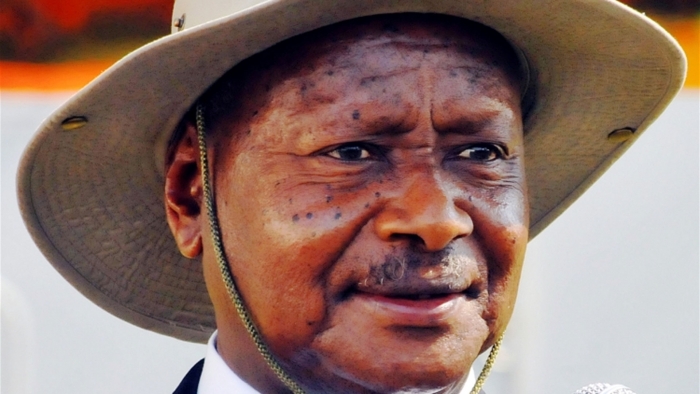 NAIROBI, 14 July 2015 (IRIN) – Burundi’s political crisis is centred on a leader who is refusing to leave office after almost 10 years. The man sent in to mediate has been in power for almost 30. Apart from that irony, Ugandan President Yoweri Museveni’s arrival in Bujumbura underlines just how high the stakes are for regional leaders.
NAIROBI, 14 July 2015 (IRIN) – Burundi’s political crisis is centred on a leader who is refusing to leave office after almost 10 years. The man sent in to mediate has been in power for almost 30. Apart from that irony, Ugandan President Yoweri Museveni’s arrival in Bujumbura underlines just how high the stakes are for regional leaders.
…
Tanzania has historically played a large role in peace negotiations in Burundi and the country has seen an influx of nearly 77,000 refugees since the crisis in its much smaller northeastern neighbour began.
Tanzanian President Jakaya Kikwete hosted the latest EAC peace talks, and Nkurunziza was in the Tanzanian city of Dar-es-Salaam for a heads of state summit on the Burundi crisis in May when army leaders staged their abortive coup.
Analysts suggest that Tanzania crucially shifted its position on the crisis.
“Initially Kikwete had been saying that Nkurunziza had to leave, but it is Tanzania that at that critical moment at the end of May stopped insisting on Nkurunziza’s departure,” said Devon Curtis, senior lecturer in Politics and International Studies at the University of Cambridge, speaking at a Rift Valley Institute (RVI) event in Nairobi.
“There’s animosity of course between Tanzania and Rwanda, and I think that Tanzania thought that the coup attempt on the 13th of May was supported by Rwanda.”
Since mid-May, Tanzania has stopped talking about the issue of term limits and instead focused on attempting to find a negotiated, political solution.
Meanwhile, the Tanzanian ruling party appears able to change leadership smoothly – it has nominated John Magufuli as its leader for upcoming elections, replacing Kikwete after two terms in power.
…



